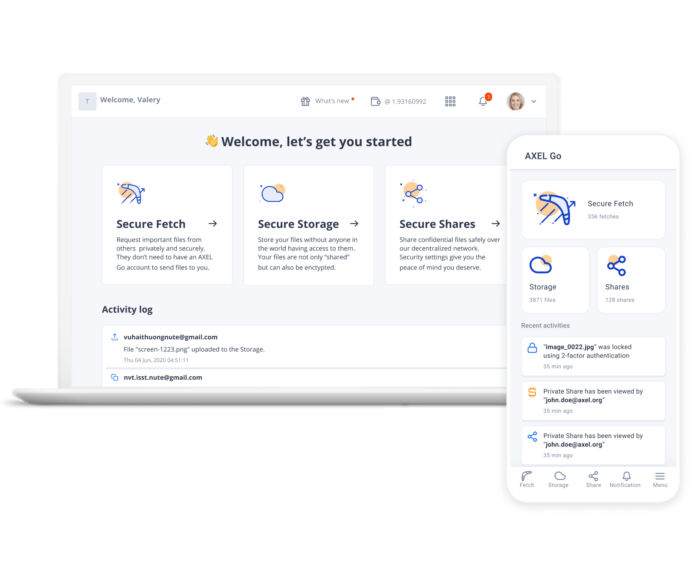eDiscovery is no longer novel. You may not be eFiling in your jurisdiction, but the exchange of evidence, and the information likely to lead to evidence, is done primarily in digital format. In fact, the majority of evidence, at this point, never actually took physical form. Photos of accident scenes, text messages between landlord and tenant, and the opposing party’s bank statements have spent their entire lifecycle in digital form. Built with blockchain technology and military grade encryption, AXEL Go helps lawyers collect, store, and share these files securely. Now, AXEL Go has launched a new feature: metadata preservation when collecting files.
You see, all of this digital information comes loaded with its own cache of information about it—or metadata. This metadata tells us a lot about a document, a photo, a scan, a voicemail, or any other digital file. It can help authenticate a piece of evidence or even just give us more information to work with.
For some time now, lawyers should have been paying attention to metadata, although many haven’t. This is because the tools to preserve this information properly have classically been too expensive to obtain for day-to-day matters. So, many lawyers have not only been sharing files in an insecure way (read: unencrypted email) but have also been doing so in a way that could lead to spoliation. For example, if the question of when a document was last accessed is at issue, and you change that information during the discovery process, your argument may be negatively affected.

Secure Fetch File Sharing from AXEL Go
Since the introduction of Secure Fetch in 2020, AXEL Go has included a method for securely collecting files. Secure Fetch, as the name suggests, allows users to send a link to a third party in order to collect files. When the third-party clicks the link, they are sent to a secure webpage and prompted to upload their files. They do not need an AXEL Go account to send files back, and once the files are uploaded, they are encrypted and sharded during transfer and the file requestor is notified when the transfer is complete.
With the Secure Fetch’s new metadata preservation feature, AXEL Go is a defensible and easy-to-use option to collect evidence from clients while preserving crucial metadata. For smaller document collections and loose files, AXEL Go eliminates the need for costly forensic examiners
Importance of Metadata
The second issue lawyers tend to have when sharing, storing, or accumulating files for discovery is that it is easy to inadvertently change the metadata on a file in the process. By opening a file using MS Word, the lawyer may change the “last updated,” “last accessed,” or possibly more. This same idea goes for images, audio files, PDF files, and any other piece of digital evidence.
In modern litigation, though not always at issue, it isn’t uncommon for metadata to be used to prove a critical fact that the metadata speaks to. For instance, the creation date could play a large part in an intellectual property matter, or the date a file was last accessed may go to notice or potentially start a Statute of Limitations. If this metadata is not preserved, whether intentional or through neglect, it could negatively impact how your side can use the evidence.
AXEL Go File Sharing Preserves Metadata
Although metadata preservation is not uncommon in large eDiscovery cases, AXEL Go makes it more accessible for day-to-day matters. With the launch of this feature in Secure Fetch, lawyers don’t necessarily need a forensics expert to help them marshal smaller document collections.
When fetching data from another party, preserving the metadata is as easy as checking a box. When this happens, not only is the metadata preserved, but you get a verified certificate of those files with their metadata. Technically, you get MD5, SHA1, and SHA3-512 hash values of the files. This means you can easily compare the files to find potential changes..
In order to confirm the defensibility of Secure Fetch in AXEL Go, AXEL enlisted Rob Hook to test and verify the tool’s ability to preserve metadata. Rob has extensive experience in computer science, electronics, and the litigation environment with unique capabilities related to collection, investigation, and other forensic offerings. He has personally performed over 1000 collections. In the following video, Rob sat down with our Legal Tech Advisor, Zack, to discuss the importance of the new feature.
How to Get It
To learn more about secure file sharing with AXEL Go, visit get.axel.org/lawyerist. There, you can learn about their military-grade security, along with storage, fetch, and obviously, metadata preservation.
Share Article
Last updated January 26th, 2024